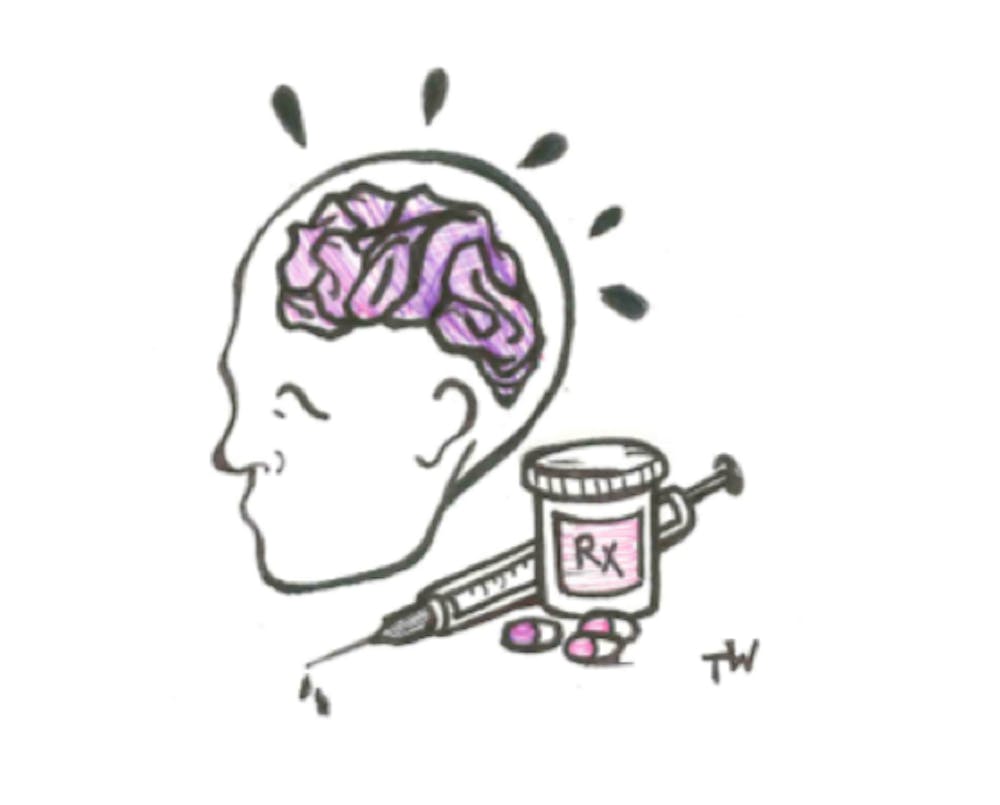Mental illness is not a personal shortcoming; it is a disease that is exacerbated by the shame that comes with stigma.
We as a society gravely misunderstand mental illness. While we are universally willing to treat bacterial infections, mental illness is presumed to be a personal shortcoming rather than a chronic illness. Treatment is associated with acceptance of being “sick,” rather than the brave pursuit of being healthy. This is backwards: expert consensus dictates that mental illness, such as addiction, is best conceived as a chronic, often fatal, disease.
The truth is, as a disease, mental illness must be treated not only by “willpower,” but by personal, chemical, behavioral and even spiritual modifications in a manner not unlike treating other chronic illnesses like heart disease. Nonetheless, there remains a stigma around mental illness: it’s more shameful than being physically ill.
Rather than conceiving of mental illness as a failure, we should think of it as a character-defining challenge: just as cancer survivors are held as heroes in American society, so should surviving addicts and depressives be idolized for their valor, resilience and adaption.
We are each psychologically limited, emotionally vulnerable and personally fallible in ways beyond our control (but not beyond hope). We underestimate the constant threat that forces beyond our conscious, rational control pose to us. Some arise outside of us: we cannot comprehend the constant possibility of world-shattering tragedy or of experiencing a traumatic event. Some threats to our well-being grow from within, which is not to say that they are preventable.
The experience of the mentally ill is completely incomprehensible to those without their disease; the healthy cannot possibly fathom the depth of their suffering nor the impossibility of small, daily tasks for somebody with a severe mental illness. However, inability for the healthy among us to empathize does not mean we are immune: once we understand that mental illness is not a question of will-power, nor deterministic, we must accept that each of us — as impossible as it is to comprehend — are vulnerable to mental illness.
For example, many perceive drug addicts as selfish, manipulative and, perhaps most damning, purposeless. The truth, however, is that addiction is a twisted, ruthless disease from which no one can be certain they are safe. The aforementioned traits of addiction are not common to people who become addicted, but are symptoms of the illness of which we are all capable. The moralization of addiction that lies at the heart of American drug policy is profoundly counter-productive, demonizing the sick and fetishizing “law and order” at the cost of the civil liberties of vulnerable individuals and communities.
To acknowledge that one is an addict and to receive treatment is not an admission of weakness, but a proclamation of hope and a dedication to achieving one’s own potential. The case for restorative versus retributive justice — essentially treatment and rehabilitation versus punishment and deterrence — basically makes itself when you have the facts.
While it is clear that some are more predisposed to mental illness like depression or addiction than others — the role of genetics and trauma are among the major risk factors — the plasticity and complexity of neurological functions means that nobody can be certain they are safe. And this is not a small issue, nor one limited by class: law-abiding, loving, likable people get hooked on legal painkillers like prescribed oxycodone (“Oxy” or “Percoset,” but basically reformulated heroin) every day: in fact, according to the U.S. Department of Justice, nine percent of America has abused such opiates despite many starting with a legal prescription. 22 percent of Americans, according to Alcoholics Anonymous, have abused alcohol.
In addition, approximately one in eleven Americans, according to the CDC, are depressed; one in 25 were “majorly” depressed. Major depression is the leading cause of disability in the United States. The ADAA estimates that almost one in five Americans suffer from clinical anxiety. Look around the room you’re in and think about what those figures mean.
What depression, anxiety and addiction share is that they are non-voluntary, invisible and, by definition, prevent people from acting rationally or in their own self-interest. Mental illness can hollow out vibrant, fascinating people, wasting human potential not only for the affected, but impacting families, social networks and workplaces.
You and I are vulnerable. Only by acknowledging that vulnerability can we proactively protect ourselves from illness that can rob us of our vividness. Stigma surrounding mental illness is far more than antiquated: it is self-loathing. This is not about liberal ideology, political correctness, or anecdotal defense of the character of those suffering from mental illness. No. To recognize one’s own fallibility is a necessary act of self-preservation.
The truth is that, at one point or another, each of us will need to rely on others to thrive and even to survive. The modesty to accept the possibility that some day we may need help, even if times are good at present, is incredibly important. Acknowledging the possibility of our own future mental illness is not weak, but wise, because only by holding within us a willingness to fight can we overcome or manage such a dangerous disease. After all, being relatively happy — and functional — is not selfish, but a prerequisite for helping others.
Artwork by TAMIR WILLIAMS



